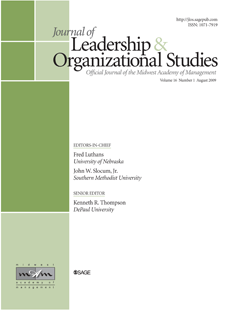



Impact On Individuals
-
Psychologist David Rock states, “when you experience significant internal tension and anxiety, you can reduce stress by up to 50% by simply noticing and naming your state.” - Business Insider
Dr. Mitch Abblett in Tame Reactive Emotions By Naming Them further explains, if we can see the emotion, we do not have to be the emotion.
Dr. Dan Siegel coined the phrase, “name it to tame it”. Noticing and naming our emotions helps create some distance between the emotion and the intense feelings that accompany it.
-
• Deep insights into your strengths, weaknesses, and triggers
• Understand your impact on others
• Make confident decisions and master your emotions
• Lead with purpose, conviction, and authenticity
-
• Develop active listening skills
• Express ideas, thoughts and feelings clearly
• Break down communication barriers
• Build strong relationships
• Unlock the keys to building trust and fostering meaningful connections
-
• Manage stress and reduce burnout
• Prioritize effectively and establish boundaries
• Adapt to change with ease
• Emotional intelligence builds resilience and coping skills (Harvard Business Review)
“Emotional intelligence training provides individuals with the tools to handle emotions constructively, leading to increased self-confidence, greater self-acceptance, and improved mental health. It fosters emotional well-being and supports personal growth and resilience.”
- Dr. Susan David, psychologist and author of "Emotional Agility.
Impact On Business
-
A study published in the Journal of Occupational and Environmental Medicine in 2019 found that EQ training for healthcare professionals led to reduced burnout and stress levels. Participants reported increased self-awareness, improved emotional regulation, and better coping mechanisms, resulting in lower burnout rates.
-
A research study published in the Journal of Organizational Behavior in 2017 examined the effects of EQ training on executives. The findings indicated that EQ training improved leadership skills, including better decision-making, effective communication, and increased empathy. Participants demonstrated higher levels of emotional self-awareness and the ability to manage emotions in challenging situations.
-
In a study published in the Journal of Business and Psychology in 2016, researchers explored the impact of EQ training on teams in a business setting. The results showed that teams with members who received EQ training demonstrated improved collaboration, higher levels of trust, and enhanced interpersonal relationships. These factors positively influenced team performance and productivity.
-
Several studies have examined the impact of EQ training on healthcare professionals' ability to provide quality patient care. Research published in the Journal of Nursing Education and Practice in 2018 found that EQ training for nurses improved their communication skills, empathy, and patient-centered care, leading to higher patient satisfaction scores.
-
A study published in the Journal of Occupational and Organizational Psychology in 2015 investigated the effects of EQ training on conflict management among employees. The findings indicated that EQ training improved conflict resolution skills, reduced workplace conflicts, and created a more positive work environment.
-
"The impact of emotional intelligence on performance" (Goleman, 1998)
In this research, Goleman examined the impact of emotional intelligence on performance in various job roles and industries. The study concluded that individuals with higher emotional intelligence tend to outperform those with lower emotional intelligence in leadership positions, sales roles, and customer service roles.
“Emotions affect how we work and see change - there are always changes being made. It is important to articulate and be aware of each team member's emotions in collaboration.”
— Associate Press













